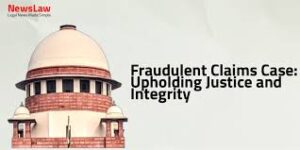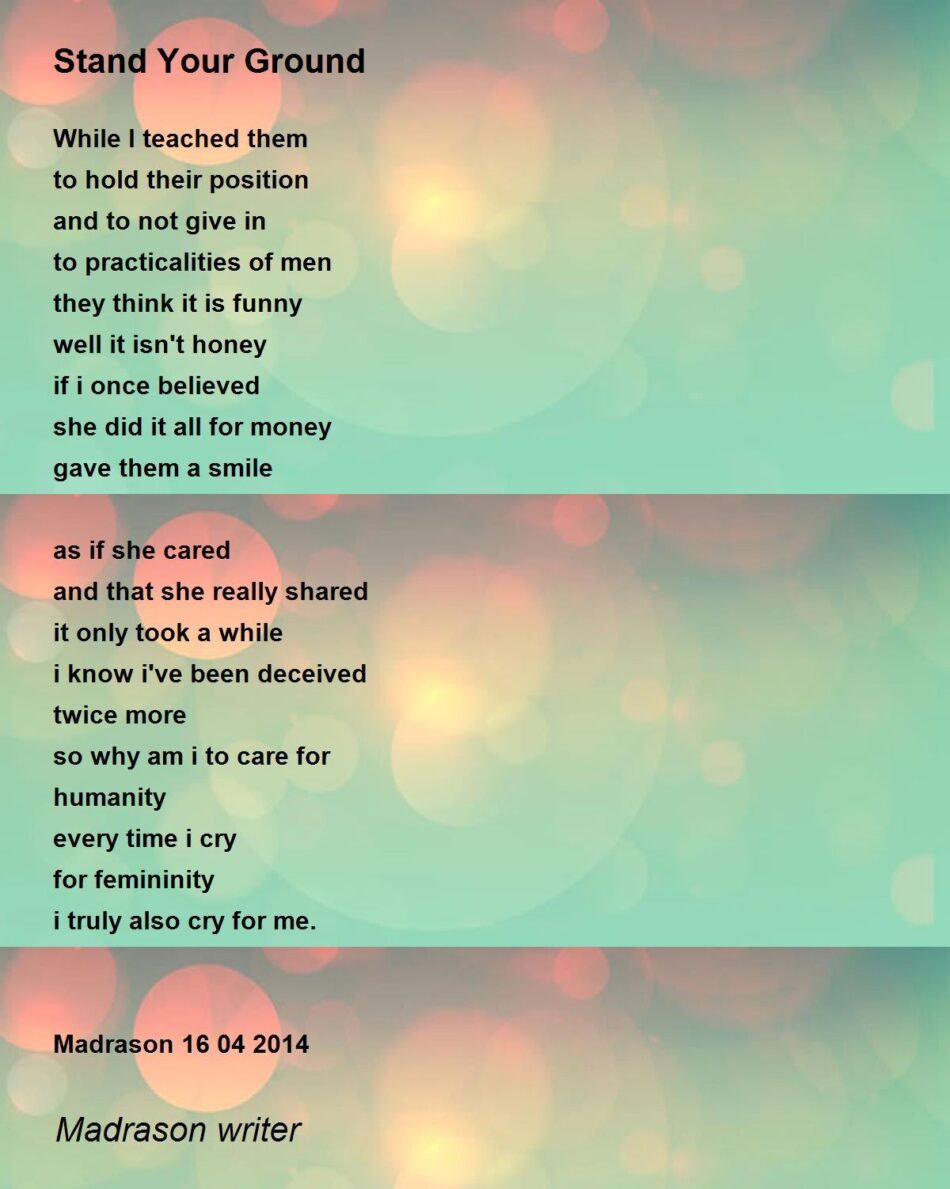please share. and join in the discussion at https://www.pigandcrown.co.uk/forum/
At minute 16:


Page Description
Discover how stubbornness can lead to injustice, as exemplified by the British Post Office scandal and the dangers of refusing to accept the truth.

Stand your ground: Op je strepen staan (in the Dutch language)
idiom
To refuse to be pushed backwards, or to continue in your beliefs in an argument.
The battalion stood its ground in the face of repeated attacks.
Clare stood her ground in the meeting and refused to be intimidated even when Michael got angry.
Cambridge Dictionary
Stand your ground: To refuse to change your opinion or give in to an argument.
I kept trying to get my grandmother to find a smaller house, but she stood her ground.
American Cambridge Dictionary
“Stand your ground” can lead to negative outcomes when it morphs into stubbornness or an unwillingness to accept the truth
Stubbornness can hinder justice: When parties refuse to acknowledge their faults, it not only prolongs the suffering of those affected but also obstructs the legal system from functioning as intended.
The impact on innocent individuals: the consequences faced by the Subpostmasters due to the Post Office’s refusal to admit wrongdoing reinforces the personal cost of this stubbornness.
Broader implications for the legal system: such behaviors can undermine public trust in the justice system and its ability to protect the innocent.
‘Op je strepen staan’ kan tot negatief resultaat leiden wanneer het verandert in koppigheid of een onwil om de waarheid te accepteren.
Koppigheid kan gerechtigheid in de weg staan: wanneer partijen weigeren hun fouten te erkennen, verlengt dit niet alleen het lijden van de getroffenen, maar belemmert dit ook het functioneren van het rechtssysteem.
De impact op onschuldige individuen: de gevolgen voor de Subpostmasters door de weigering van de Post Office om schuld te erkennen, onderstrepen de persoonlijke kosten van deze koppigheid.
Bredere implicaties voor het rechtssysteem: dergelijk gedrag kan het vertrouwen in het rechtssysteem en in het vermogen om onschuldigen te beschermen ondermijnen.
The Dutch saying “de luis in de pels”
“a thorn in one’s side” or “a thorn in the flesh.”
Both expressions refer to a person or thing that causes persistent annoyance or trouble, similar to how a louse would be an irritating pest.
The expressions “a thorn in one’s side” or “a thorn in the flesh” typically describe someone or something that causes ongoing irritation or annoyance, but they might not capture the full nuance of “de luis in de pels,” which often implies a more subtle, insidious annoyance or a challenge to comfort that can disrupt the status quo.
In context, it might describe someone who challenges the status quo or raises uncomfortable questions, much like how the phrase is often used to highlight those who disrupt complacency or bring attention to issues that others might prefer to ignore.
De uitdrukkingen ‘een doorn in het oog’ of ‘een doorn in het vlees’ beschrijven doorgaans iemand of iets dat voortdurende irritatie of ergernis veroorzaakt, maar ze vangen mogelijk niet de volledige nuance van ‘de luis in de pels’, wat vaak een subtielere, insidieuze ergernis of een uitdaging voor de comfort inhoudt die de status quo kan verstoren.
In de context kan het iemand beschrijven die de status quo uitdaagt of ongemakkelijke vragen stelt, vergelijkbaar met hoe de uitdrukking vaak wordt gebruikt om degenen te benadrukken die zelfgenoegzaamheid verstoren of aandacht vestigen op kwesties die anderen misschien liever negeren.
The phrase “Justitie is levensgevaarlijk” translates to “Justice is life-threatening” in English. This expression captures the complex and often paradoxical nature of justice systems, especially in contexts where pursuing justice can lead to significant personal risk or danger. Here are some key points that can help explain this concept further:
Critique of Justice Systems:
This phrase can serve as a critique of justice systems that, rather than protecting individuals, may inadvertently expose them to harm. For instance, whistleblowers or individuals challenging corrupt practices may find themselves in dangerous situations as they seek to expose the truth.
Implications of Injustice:
The phrase suggests that the pursuit of justice can sometimes lead to severe consequences for those involved. This could relate to wrongful convictions, harsh penalties, or retaliatory actions against those who seek to challenge the status quo.
Real-Life Examples:
In various historical and contemporary cases, individuals who stand up for justice – whether through activism, legal challenges, or journalism – have faced threats, violence, or persecution. This reality emphasizes the risks associated with pursuing justice in an unjust world.
Philosophical Perspective:
Philosophically, the statement raises questions about the nature of justice itself. What happens when justice, intended to uphold rights and fairness, becomes a source of danger? It challenges us to think critically about how justice is administered and who it truly serves.
Call to Action:
By stating that “Justice Is Life-Threatening,” there may be an implicit call to reform justice systems to ensure they are safe, equitable, and truly serve the interests of all citizens, rather than putting lives at risk.
Overall, the phrase “Justice Is Life-Threatening” serves as a powerful reminder of the complexities and potential dangers associated with the pursuit of justice. It invites critical reflection on how justice systems operate and the need for ongoing reform to protect individuals who stand up for what is right.
De uitdrukking “Justitie is levensgevaarlijk” vertaalt zich in het Engels naar “Justice is life-threatening.” Deze uitdrukking vangt de complexe en vaak paradoxale aard van rechtssystemen, vooral in contexten waarin het najagen van gerechtigheid kan leiden tot aanzienlijke persoonlijke risico’s of gevaren. Hier zijn enkele belangrijke punten die dit concept verder kunnen verduidelijken:
Deze uitdrukking kan dienen als een kritiek op rechtssystemen die, in plaats van individuen te beschermen, hen onbedoeld blootstellen aan gevaar. Bijvoorbeeld, klokkenluiders of personen die corruptie aan de kaak stellen, kunnen zich in gevaarlijke situaties bevinden terwijl ze de waarheid proberen bloot te leggen.
De uitdrukking suggereert dat het najagen van gerechtigheid soms ernstige gevolgen kan hebben voor de betrokkenen. Dit kan betrekking hebben op onterechte veroordelingen, zware straffen, of vergeldingsacties tegen degenen die het status quo uitdagen.
In verschillende historische en hedendaagse gevallen hebben individuen die opkomen voor gerechtigheid – of het nu via activisme, juridische uitdagingen of journalistiek is – te maken gehad met bedreigingen, geweld of vervolging. Deze realiteit benadrukt de risico’s die gepaard gaan met het streven naar gerechtigheid in een onrechtvaardige wereld.
Filosofisch gezien roept de uitspraak vragen op over de aard van gerechtigheid zelf. Wat gebeurt er als gerechtigheid, bedoeld om rechten en rechtvaardigheid te handhaven, een bron van gevaar wordt? Het daagt ons uit om kritisch na te denken over hoe gerechtigheid wordt toegepast en wie het werkelijk dient.
Door te stellen dat “Justitie is levensgevaarlijk,” is er mogelijk een impliciete oproep tot hervorming van rechtssystemen, om ervoor te zorgen dat ze veilig, eerlijk en werkelijk de belangen van alle burgers dienen, in plaats van levens in gevaar te brengen.
Al met al is de uitdrukking “Justitie is levensgevaarlijk” een krachtige herinnering aan de complexiteit en de potentiële gevaren die gepaard gaan met het nastreven van gerechtigheid. Het nodigt uit tot een kritische reflectie op hoe rechtssystemen werken en de noodzaak van voortdurende hervormingen om individuen te beschermen die opkomen voor wat juist is.
The fact that someone has no awareness or guilt for such profound harm raises the question of whether they have, in a sense, relinquished a core aspect of their humanity: the ability to feel empathy, responsibility, and regret for the suffering of others. By playing with justice and disregarding the immense harm caused, they exhibit traits often associated with psychopathic or sociopathic tendencies. (cfr. Unveiling What Really Happened).
Justice has a dark side (cfr.: the intro on the first page of the website).
The expression “That’s a bit oversimplified” is used when someone makes a statement or judgment that lacks nuance or doesn’t consider all factors, like jumping to conclusions.
Looking at cases of wrongful convictions with blinders on – narrowing your view to simplistic explanations or focusing only on surface-level details – does an immense disservice to those whose lives have been ruined by the justice system. Since 1989, there have been 3,601 cases in the U.S. alone where individuals, later exonerated, had their lives reduced to chaos, an unimaginable mess.
These are people who were innocent, yet the system treated them as criminals, throwing them into a completely wrong context. Instead of addressing these injustices with critical thinking, we often see a rushed judgment, failing to recognize the deeper, existential questions at play. Justice should not be about artificially fitting people into a flawed system, but about understanding the full picture of their innocence.
Kort door de bocht
De uitdrukking ‘Kort door de bocht’ wordt gebruikt wanneer iemand een uitspraak of oordeel doet dat geen oog heeft voor nuance of niet alle factoren in overweging neemt, zoals wanneer men te snel conclusies trekt.
Het bekijken van zaken van onterechte veroordelingen met een paardenbril op – door je blikveld te vernauwen tot simplistische verklaringen of je alleen te richten op oppervlakkige details – doet enorm onrecht aan degenen van wie het leven door het rechtssysteem is verwoest. Sinds 1989 zijn er alleen al in de VS 3.601 zaken waarin mensen, die later zijn vrijgesproken, hun leven gereduceerd zagen tot een puinhoop.
Deze mensen waren onschuldig, maar het systeem behandelde hen als criminelen en plaatste hen in een totaal verkeerde context. In plaats van deze onrechtmatigheid met kritisch denkvermogen aan te pakken, zien we vaak een overhaast oordeel, waarbij de diepere, existentiële vragen over het hoofd worden gezien. Gerechtigheid zou niet moeten gaan over het kunstmatig inpassen van mensen in een gebrekkig systeem, maar over het begrijpen van het volledige plaatje van hun onschuld.
The term “common denominator” refers to a shared characteristic or factor among different elements or groups.
There is something abnormal and completely incomprehensible about how young people can be taken out of their normal lives, completely unrelated to any wrongdoing, and without reason, have their lives ruined. Shocking cases like those of Brian Banks and Ryan Ferguson, who both spent years in prison before being exonerated, highlight this injustice.
Andrew Makinson – wrongly imprisoned for 17 years – unsafe conviction
Please listen the video below
6 jun. 2019
please share. and join in the discussion at https://www.pigandcrown.co.uk/forum/
Kid Disappears In Brick Wall Prank – Just For Laughs Gags
Prank victims are asked to watch over a bad little kid. The brat decides to run off into a portable fireplace, and disappears through a what looks like brick wall. The panicked mother returns and goes into the solid brick wall to rescue him, while the confused prank victims don’t know what just happened.

Gerry Monahan
2 jaar geleden (bewerkt)